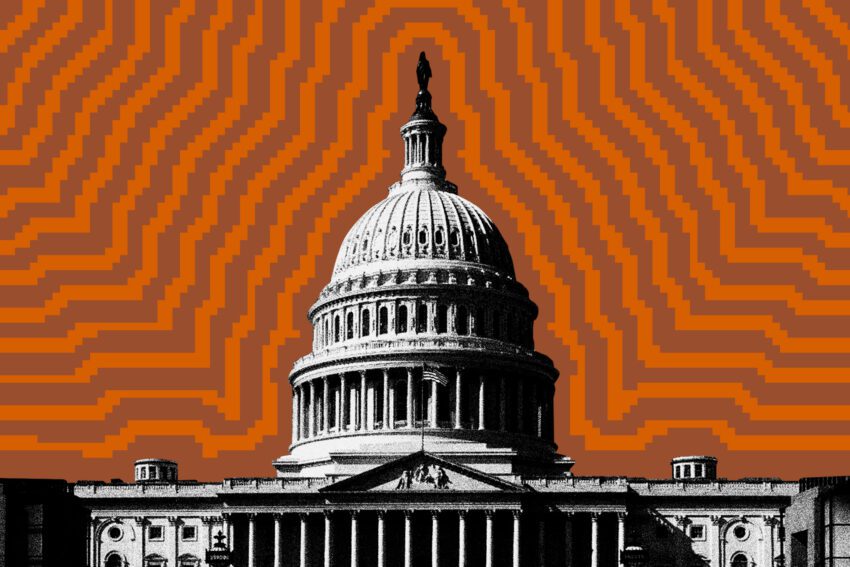
senators call on trump to continue banning A group of U.S. senators is urging President Donald Trump to maintain restrictions on the sale of advanced chips to China, emphasizing the need to preserve the United States’ competitive edge in artificial intelligence (AI) development.
senators call on trump to continue banning
Bipartisan Resolution Highlights Concerns
The bipartisan resolution, introduced by Senators Chris Coons (D-DE) and Tom Cotton (R-AR), comes in the wake of President Trump’s recent comments that suggested he might consider allowing Nvidia to sell its powerful Blackwell chip in China. This potential shift raised alarms among lawmakers who are increasingly concerned about the implications of China closing the technological gap in AI.
Coons and Cotton’s resolution is co-sponsored by Senators Amy Klobuchar (D-MN) and Dave McCormick (R-PA), reflecting a growing consensus across party lines regarding the importance of safeguarding U.S. technological supremacy. The resolution underscores the urgency of addressing China’s ambitions in AI, stating that the nation is making significant strides to “close the AI gap and leap ahead” of the United States in developing and deploying frontier AI models.
The Stakes of AI Development
AI technology has become a cornerstone of modern economies, influencing sectors ranging from healthcare to finance, and even national security. As AI systems become more integrated into critical infrastructure, the ability to control and restrict access to advanced technologies is seen as vital for maintaining a competitive edge. The senators argue that China’s “inability to make and access computing power is the main impediment to its progress,” and that this gap must be preserved to ensure U.S. leadership in AI.
In their resolution, the senators call for the U.S. government to encourage American companies to provide “priority access” to their most advanced AI chips, cloud infrastructure, and models to allied nations. This approach aims to foster collaboration among allies while simultaneously preventing adversaries like China from acquiring cutting-edge technology.
Statements from Lawmakers
Senator Coons articulated the gravity of the situation in a statement, saying, “We cannot allow China to leap ahead of us and bolster their weapons capabilities, maximize their cyberattacks against American industry, and threaten long-term U.S. economic and national security.” He emphasized that the bipartisan resolution is a step toward a future where frontier AI systems are developed in the United States by American companies, thereby reinforcing the nation’s technological leadership.
Senator Cotton echoed these sentiments, highlighting the potential risks associated with allowing China access to advanced AI technologies. He stated, “The U.S. must remain vigilant in protecting our technological advantages, especially in areas that could impact our national security.” This bipartisan effort reflects a broader recognition of the strategic importance of AI in global power dynamics.
Export Controls Under Threat
The senators are advocating for the continued enforcement of export controls that prevent U.S. chipmakers, including Nvidia, from selling their most advanced chips to China. This policy was put at risk when President Trump indicated he would discuss the possibility of selling Nvidia’s Blackwell chip to Chinese President Xi Jinping. Such discussions raised concerns among lawmakers about the potential erosion of U.S. technological advantages.
Export controls have been a critical tool for the U.S. government in managing the flow of sensitive technologies to adversarial nations. The resolution aims to reinforce these controls, ensuring that U.S. companies do not inadvertently contribute to the technological advancements of a strategic competitor like China.
Nvidia’s Perspective
In a recent interview with The Financial Times, Nvidia CEO Jensen Huang acknowledged the competitive landscape, stating that “China is going to win the AI race.” He cited factors such as lower energy costs and fewer regulatory hurdles as advantages that could facilitate China’s rapid advancements in AI technology. Huang’s comments reflect a growing concern among industry leaders about the implications of a more competitive AI landscape.
Huang later clarified his position, suggesting that China is merely “nanoseconds behind America in AI.” This statement underscores the urgency of the situation, as even slight advancements in AI capabilities can have significant implications for national security and economic competitiveness.
Emerging Competitors in the AI Space
Earlier this year, Chinese AI startup DeepSeek made headlines with the launch of cost-efficient AI models that perform comparably to data-intensive offerings from established companies like OpenAI. This development sent shockwaves through the industry, highlighting the rapid pace at which Chinese companies are innovating in the AI sector. The emergence of such competitors raises questions about the sustainability of U.S. leadership in AI and the need for proactive measures to maintain that edge.
Recent Developments in U.S.-China Tech Relations
In light of these concerns, President Trump has taken steps to negotiate terms with Nvidia and AMD that would require these companies to pay a 15 percent commission on the stripped-down chips they sell to China. This deal represents a compromise aimed at balancing economic interests with national security concerns. However, it also raises questions about the long-term implications of allowing any level of technology transfer to China.
Critics argue that even limited access to advanced chips could enable China to enhance its AI capabilities, potentially leading to advancements in military technology and cyber warfare capabilities. The resolution from the senators aims to prevent such scenarios by reinforcing export controls and ensuring that U.S. technological advantages are not compromised.
Global Implications of AI Competition
The competition for AI supremacy is not merely a bilateral issue between the U.S. and China; it has global implications. As countries around the world invest heavily in AI research and development, the race for technological leadership is intensifying. Nations are increasingly recognizing the strategic importance of AI in shaping their economic futures and enhancing national security.
For the U.S., maintaining a lead in AI technology is crucial not only for economic competitiveness but also for ensuring that its values and standards shape the future of AI development. The potential for AI to be used in ways that conflict with democratic principles raises ethical concerns that must be addressed as the technology evolves.
Conclusion
The bipartisan resolution urging President Trump to maintain restrictions on advanced chip sales to China reflects a growing recognition of the strategic importance of AI technology. As lawmakers emphasize the need to preserve the U.S. edge in AI development, the implications of these decisions will resonate far beyond the tech industry. The outcome of this ongoing debate will shape the future of U.S.-China relations, the global balance of power, and the ethical considerations surrounding AI technology.
Source: Original report
Was this helpful?
Last Modified: November 7, 2025 at 1:40 am
2 views















